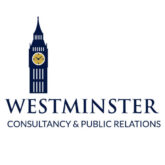Executive Summary
Disinformation has become one of the most pressing threats to democratic governance. From election interference to polarisation during crises such as the COVID-19 pandemic and the Gaza war, democracies are increasingly vulnerable to manipulation through false or misleading information. The spread of disinformation undermines public trust, weakens institutions, and fuels division.
This policy brief outlines a practical toolkit for governments, parliaments, and civil society to counter disinformation. It emphasises four priorities: enhancing media literacy, strengthening regulatory frameworks, fostering partnerships with technology platforms, and supporting independent journalism. Taken together, these measures provide a roadmap for defending democratic resilience in the digital age.
Introduction
Democracies thrive on informed public debate, but in recent years, the integrity of information itself has come under sustained attack. The deliberate spread of disinformation — whether by state actors, political movements, or profit-driven platforms — has eroded the ability of citizens to distinguish fact from fiction.
The consequences are profound. Disinformation campaigns have distorted electoral outcomes, undermined public health measures, and stoked violent unrest. For policymakers, countering this threat is no longer optional; it is essential for safeguarding democracy.
💡 “In some European states, more than 60% of citizens say they struggle to distinguish real news from disinformation.”
Policy Options for Democracies
Addressing disinformation requires more than reactive fact-checking; it demands a systemic response. Policymakers should begin by investing in media literacy, ensuring that citizens — especially younger generations — are equipped to critically evaluate online content. Schools, universities, and public awareness campaigns can play central roles in cultivating digital resilience.
At the same time, regulatory frameworks must be updated for the digital era. Clear rules on political advertising, transparency of algorithms, and accountability for platforms that host disinformation are necessary. Democracies should aim to regulate without overstepping into censorship, striking a careful balance between freedom of expression and protection from manipulation.
Another key step is partnership with technology platforms. Governments alone cannot monitor or regulate the vast digital space, but collaboration with companies such as Meta, Google, and TikTok can ensure faster detection and removal of harmful disinformation. Transparency in moderation practices and the sharing of data with researchers are vital.
Finally, policymakers should support independent journalism, which remains the most effective antidote to disinformation. Funding models that sustain local news outlets, protections for investigative reporting, and legal safeguards for press freedom all strengthen the broader information ecosystem.
“The best defence against disinformation is not censorship — it is resilience.”
Conclusion
Disinformation corrodes the foundations of democracy by distorting truth and sowing division. For policymakers, the challenge is to build societies that are resilient to manipulation without undermining the freedoms that make democracy meaningful. By promoting media literacy, updating regulations, partnering with tech platforms, and empowering independent journalism, democracies can develop a comprehensive toolkit to counter this threat.
At Westminster Consultancy, we argue that defending democracy in the digital age requires both vigilance and creativity. The goal is not to eliminate disinformation entirely — an impossible task — but to reduce its impact, strengthen trust, and ensure that democratic debate remains grounded in truth.

